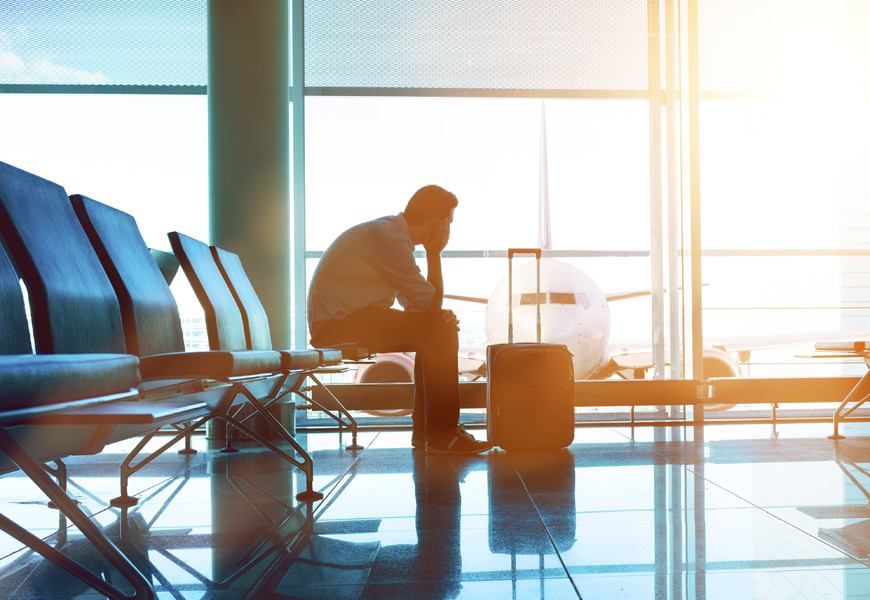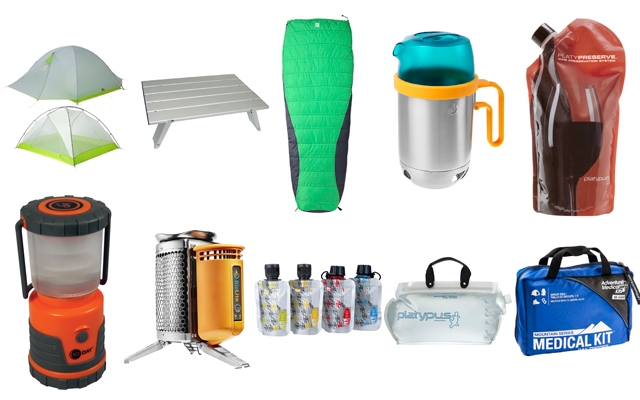Whether you travel all the time or you’re more of a one big trip a year type of person, if you’ve ever taken a flight to a different time zone, you’ve experienced jet lag. That tired, sluggish, just-kind-of-off feeling happens when you’re forced to adjust to a new time. Your circadian rhythm which is an internal body clock that is set to a 24-hour loop gets confused when you’re suddenly not sticking to your usual sleeping, eating, and overall daily routine.
It doesn’t usually take too long for your body to adjust, but when you’re on vacation, it’s not as if you have a couple spare days to be lazy while your internal clock catches up. Most people will just power through the sluggishness—and depending on what kind of vacation you’re taking, the adrenaline is enough to carry you through. But there are a few ways you can make jet lag suck a little bit less. They may not work for everyone and they may not work every time, but hey, it’s worth a shot, right?
Stay hydrated
Drinking enough water on a regular basis is important, but when you’re traveling it’s easy to get distracted by everything else going on to forget that you haven’t had any H2O in hours. Not to mention if you forget to bring a bottle of water on the plane, you’ll probably only be able to get a tiny plastic cup full at a time. As tempting as they may be, it’s a good idea to try to avoid alcohol and caffeine during the flight. Ideally, drinking plenty of water in the airport, during the flight, and as soon as you land is the way to go so you aren’t playing catch up once you’ve arrive at your destination.
Manage your sun exposure
Light has a huge influence on your body’s natural clock so managing your exposure a little bit can help you feel better and adjust faster. Obviously, if you arrive at your destination in the morning but your body thinks it’s still the middle of the night, it’s going to be a bit of a shock to your system. That’s why it’s best to take it easy the first day. You won’t be able to avoid the sun completely, but a beach day probably isn’t the best option either. Use sunglasses and stay out of the direct sun as much as you can until late morning and then get some sun in the afternoon. Each day, expose your eyes to light a little earlier so it’s a gradual adjustment.
Stay up until your usual bed time in your new time zone
If, for example, you normally go to bed around 11pm and you arrive at your destination at 6pm, but it feels like 11pm your usual time, whatever you do, DON’T go straight to bed. You’ll end up waking up way too early and won’t even be able to get out and explore because, well, the the sun isn’t even up yet. You don’t want to get too much sleep either because that will throw you off in the long run and just make your sleep patterns that much harder to correct once you get home. Even if you’re having a hard time staying awake when you land, do your best—you’ll end up having a great night’s sleep and wake up ready to really start your vacation the next day.
Eat small meals to sync your schedule
When you arrive in a new city, the first think you probably want to do is stuff your face with whatever local cuisine you have been drooling over on Instagram since you booked your trip. But if it’s not a time of day that you would usually eat a big meal, it’s best to have a small snack and wait until lunch or dinner time in your new time zone to have something more substantial. That way your digestive system (another way your body clock keeps time) will start getting used to its new schedule as soon as possible and the rest of your trip will be smooth sailing.












